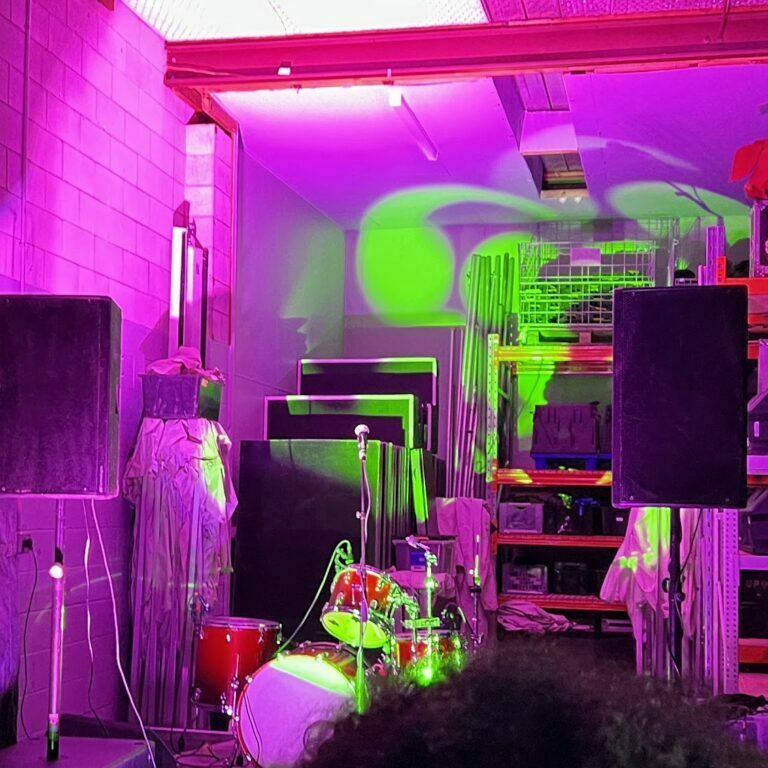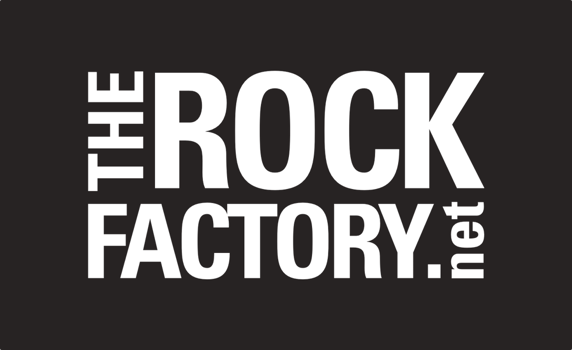Youth Arts Workshop with The Rock Factory

Youth Arts New Zealand (YANZ – website: YouthArts.co.nz) asked us to run a workshop for the Event Pathways Program, for young people interested in finding out more about working in the event and music production industry.
The Event Pathways Program run by YANZ is a great initiative for our rangatahi and future rangatira, and they run a fantastic 10-week course that teaches a huge range of skills and information, for young people interested in entering the Events industry. Learn more about YANZ’s Event Pathways Programme here: https://www.youtharts.
We want to thank Danielle and Gavin for thinking of us to present some of our knowledge to those enrolled during week 3 of the course.
Here are some of the things Michelle & Fluffy talked about during the workshop:
Useful Skills and Traits
In our industry, certain skills can be very valuable. These include:
- Driving Skills: A driver’s license, or even better, a truck driving license, can be very useful. We often need to transport equipment to and from events.
- First Aid: Accidents can happen, and having first aid skills can be a lifesaver. Quite literally!
- Health and Safety: Understanding health and safety protocols helps to keep everyone safe during the setup and the event.
- Fire Warden Skills: Knowing how to respond in case of a fire or evacuation is essential, especially when working with electrical equipment and crowded venues.
- Elevated Work Platform (EWP): Some setups require working at heights. Being able to operate an EWP safely is a useful skill.
- Rigging: This is especially valuable when setting up stages and lighting fixtures.
- Electrical Testing Skills: This helps ensure that all our equipment is safe and functioning correctly.
While these skills are valuable, the most essential trait in our industry is a good attitude. A willingness to work hard and be a team player is crucial. In fact, it often trumps any other skill because you can always learn new things over time. But the right attitude? That’s something you bring to the table from day one.
Remember, if you have the right attitude, people will want you on their event team. They’ll be more willing to teach you and help you grow. That’s how you build a successful career in our industry.
Stage Setup
- The role of the Stage Crew: packing and unpacking trucks, setting up the stage, ensuring safety, and coordinating with other teams.
- The skills needed for this role, like physical fitness and problem-solving.
- The career path for Stage Crew – those who are interested in a technical role in our industry often start in the stage crew. It is a great way to be exposed to larger shows and become familiar with the setup of the equipment used at music gigs.
- START SETTING UP A STAGE TOGETHER.
Backline Setup
- Define what “backline” means in the context of a music gig.
- Backline Technicians’ role is to set up and maintain the band’s instruments and amplifiers.
- Skills needed for this role include knowledge of various instruments, technical skills, and adaptability.
- The career path for Backline Technicians is moving into equipment management or tour management.
- START SETTING UP SOME BACKLINE TOGETHER, INCLUDING DRUM KIT or BASS AMP AND GUITAR AMPS.
Sound System Setup
- Why good sound is crucial for a music gig and how acoustics affect the audio.
- The role of Sound Engineers: selecting and setting up equipment, running sound checks, and managing the audio during the event.
- Questions you ask the client before setting up a PA – what will go through it, and how large an audience does it need to cover? Decide what is suitable.
- Skills needed for this role include technical knowledge, attention to detail, and a good ear for music.
- Career path for Sound Engineers, including specialisations like AV technician, mixing bands, monitor engineer, patch engineer, playback or wireless / RF specialist.
- SET UP A SOUND SYSTEM TOGETHER.
Lighting Setup
- The importance of lighting in setting the mood and directing attention.
- The role of Lighting Technicians: designing the lighting setup, installing fixtures, and managing lights during the event.
- Skills needed for this role, like creativity, technical knowledge, and timing.
- The career path for Lighting Technicians includes roles like Lighting Designer or lighting operator.
- BASIC LIGHTING SETUP AND DISCUSSION OF DMX, symmetry, smoke machines, and back lighting.
Different Roles – Summary
- Recap of Stage Crew, Sound Engineers, Lighting Technicians, and Backline Technicians.
- How these roles work together to create a successful event.
- How the roles might interact or coordinate with each other during a gig.
Other Roles
- Other vital roles in event production, like Production Manager (technical), Stage Manager (timekeeper/people wrangler)/ Artist liaison, Tour Manager (books & advances tour accom, flights, transport and times etc.) Door Person, Merch Sales (earn money for the band!) and Roadies/drivers – these are all crucial people; without them, gigs don’t happen.
Careers
- Discussed potential career paths in event production, from entry-level roles up to management.
- Highlighted the opportunity for specialisation in areas like sound, lighting, or stage design.
- Offered advice on how to get started in the industry, such as gaining experience, networking, and continuing education.
Q&A
- Encouraged participants to ask questions about the roles, the industry, or anything else they’re curious about.
- Asked participants to share their own experiences or perspectives in response to questions.
